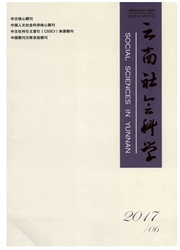

 中文摘要:
中文摘要:
清水江文书是继徽州文书之后发现的较大规模的地方文书群,其绝大部分为土地、山林买卖和商业活动的契约。而其中与社会生活有关的关于风水先生活动的部分文书,反映了清、民国时期风水观念在清水江流域已深入人心.葬地堪舆、阴地买卖在当地已较为盛行。相当活跃的风水先生堪舆报酬除银钱外,不少被酬以所觅之风水宝地之一部分的做法相当普通,并且风水先生还有作为见证参与墓地的财产分割,这与徽州通常以支付风水先生银钱作为报酬以及风水先生不能参与墓地的分割明显有别,不仅反映出两地风水先生之社会地位存在着差别,也折射出两地人文传统与商品经济的发展水平不一致。
 英文摘要:
英文摘要:
Qingshuijiang Documents are a new group of documents, quite large on scale, if compared with Huizhou Documents. Most of the documents are trading and business activities. And some that are tivities, which indicated that this kind of activity China. Most were about how to bury the dead in contracts about the buying and selling of land, forests, and related to social life are the instruments on fortune -telling achad been carried out in the Qing Dynasty and the Republic of geomancy and how the shade trading was done. All this was prevalent in the region. Successful fortune tellers would be paid not only money; some would even be given some land with good fortune. The fortune teller could also participate as a witness to share the property such as cemetery. This was clearly different from the social customs in Huizhou, where money could not be paid and witness could not be acted for the share of property. This not only reflects the differences in social status in both areas, but also reflects developmental difference in both humanistic tradition and commodity economy.
 同期刊论文项目
同期刊论文项目
 同项目期刊论文
同项目期刊论文
 期刊信息
期刊信息
